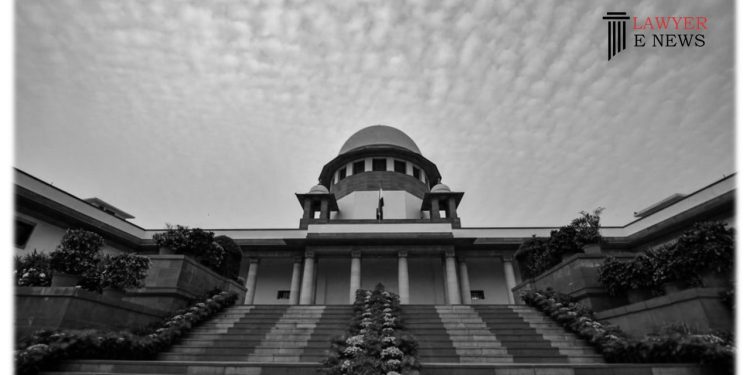-
by Admin
15 February 2026 5:35 AM



In a significant ruling today, the Supreme Court of India upheld the dismissal order passed against an employee of the Union of India in a case pertaining to disciplinary proceedings and the security of the State. The judgment, delivered by a Bench comprising Hon'ble Justice M.R. Shah and Hon'ble Justice C.T. Ravikumar, reaffirmed the limited scope of judicial review in matters where the President invokes the power to dispense with an inquiry in the interest of the security of the State.
The case revolved around an employee who was dismissed from service with effect from September 1, 2003, without undergoing any formal inquiry. The order of dismissal was based on the satisfaction of the President that holding an inquiry would not be expedient in the interest of the security of the State. The employee challenged the dismissal before the Administrative Tribunal, which was subsequently reviewed by the High Court.
The Supreme Court, after careful consideration of the facts and relevant provisions, held that the satisfaction of the President in dispensing with the inquiry was not subject to further judicial review. The Court emphasized that the scope of review was limited to examining any mala fides or extraneous grounds. The order of dismissal could only be challenged on such grounds, which were not present in the present case.
Referring to the Constitution Bench decision in Tulsiram Patel's case, the Court examined the meaning and scope of the expression "security of the State." It observed that the security of the State encompasses not only the entire country but also parts thereof. The Court further stated that the expression includes various ways in which the security could be affected, such as the disclosure of state secrets, passing on defense information, or secret links with terrorists.
Regarding the power to impose a penalty without an inquiry, the Court held that once the inquiry is dispensed with, the consideration of the penalty should be ex-parte, and no opportunity of being heard is required. However, in determining the appropriate penalty, the disciplinary authority must take into account factors such as the employee's conduct, the gravity of the misconduct, the impact on the administration, and any extenuating circumstances.
The Court found that the appellant's acts and omissions, including unauthorized absence and association with a foreign institution in a strategic research area, raised concerns about the security of the State. It concluded that the decision to dismiss the employee was justified and did not warrant any interference.
The judgment has important implications for disciplinary proceedings involving employees in sensitive and strategic organizations. It clarifies the limited scope of judicial review when the power to dispense with an inquiry is invoked in the interest of the security of the State. The ruling reaffirms the gravity of security concerns and highlights the need for an objective assessment of the employee's conduct and its potential impact on the administration.
The Supreme Court's verdict, while upholding the dismissal order, sets a precedent for similar cases in the future. It underscores the crucial role played by the judiciary in striking a balance between the security of the State and the rights of employees in disciplinary proceedings.
Date of Decision: May 12, 2023
Dr. V.R. Sanal Kumar VS Union Of India & Ors.
